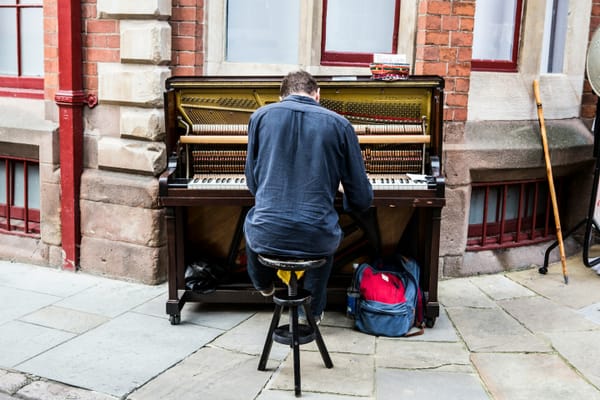The Blue Peter
My evening at the ‘Blue Peter’ proved a quirky sliding-door moment. I love engaging people, hearing stories, relishing interaction. Strangers are motherlodes of randomness. We share slivers of time enthusing about common experiences or being ears to the untold. Some stories unfold as a dam-burst, but this story was gleaned through tantalising increments of leaked information.
Hunkered down for a week in a stone cottage within an ancient coastal village in Cornwall, I was seduced by the charm of its tiny harbour. Dating from the 1300s, the small fishing village was originally an isolated settlement reachable only by boats. Today, preserved in time, it has seemingly avoided modern development. Its history includes smuggling, Cornish pirates, the Cornish language, fisherfolk and… the Blue Peter Inn on the edge of the tiny harbour. What more intrigue could an adventurer ask for? Ancient lichen covered roof-tiles splattered with gull poop, white-washed stone, rust, salt encrusted exterior, scattered fish traps and ropes; nuzzling the harbour’s edge the Blue Peter is the real deal. It oozes the stains of Cornish history.
Only a handful of people were in the pub as I entered at dusk. Gulls silhouetted on the roof ridgeline outnumbered the patrons inside. A log-fire crackled in the stone hearth, flames dancing and licking across split oak. Glancing around in the dimness, I noted perhaps six tables. Most were occupied and several had dogs tethered quietly underneath, a custom which only Englishmen can understand or explain. The barman, a sociable type with a broad west-country accent, pulled me a local Cornish ale. Eyes adjusting, I noticed an unkempt elderly man seated alone. I guessed he was probably an elderly fisherman; just the type of local story I was eager to hear. A docile whippet lay in a slumbering ball at his feet, tethered to a table-leg. Armed with my pint of Betty Stoggs ale, I asked the fisherman if he minded company. He nodded politely, gestured towards the chair opposite, told me his name was Peter. I introduced myself and jocularly asked whether he was related to Blue Peter, the name of the pub. He shook his head and grinned at my clumsy humour.
A profusion of facial stubble complemented a striking thatch of silver hair. His mannerisms and movement hinted perhaps at a slight stroke in the past. A bramble of profuse eyebrows arched at the mention of Sydney and Melbourne. We raised a glass to my Australian citizenship and his eyes brightened. Said he’d visited there in his younger days in the navy.
Nowadays he owned a small clinker-built fifteen footer with a half cabin and an asthmatic diesel. Considered himself a fisherman. Most days he motored outside the mouth of the harbour and laid fish traps. No, he hadn’t lived in Cornwall all his life. Yes, he lived in a small fisherman’s cottage beside the harbour about 400 yards from the Blue Peter.
It dawned on me later just how clever he was in avoiding the taxing questions. Peter kept his cards close to his chest throughout our delightful discussion. Through the gravitas of his answers to my questions, and his Socratic method of turning questions back towards me, an intriguing depth of character emerged. I became the subject of interrogation. Peter’s accent had slight inflections of west-country, but underpinning his vocabulary was a strong foundation of the queen’s English. He was obviously an educated man, very clever with his words.
I offered to buy him a modest pub meal and another pint. His dog, the elderly whippet named Molly, had barely stirred in the past half hour. I ordered two pub specials at the bar - faggotts, mash and onion gravy, and requested a pint of whichever was Peter’s favourite ale.
“Arrr, yerrrr, the auld admiral over there, ‘e likes the Tribute Ale. Brewed in St Austel you know. Not farrr from heeerr.”
“I’ll have two pints of the Tribute thanks. Why do you call him the admiral?”
“Not really surrre. Locals call old Peter the admiral, corrrs he’s always on the ocean. Ever day he’s ote therrr. Loves ‘is boat. ‘E doan say much, quite ‘armless really.”
We finished our meals, downed our second pints. Another elderly fisherman dropped off a bag of shellfish to Peter. He smiled imperceptibly and nodded towards him before returning his focus towards me.
“So, Barry… you mentioned not liking your job back in Australia. Why might that be?” Peter asked.
I paused, thinking hard to avoid too glib an answer.
“Hmmm… My boss, I guess. Unapproachable at times. Undemocratic in his decision-making. Aloof. Sometimes I visualize standing beside a mountain stream with my boss beneath snow-capped peaks. The breeze whistles softly through forest pines, birds-of-prey soar overhead. I reach out to my boss, grab him roughly by the hair and plunge his head several times into the depths of that chilly stream. Then I release him. I always feel better after that!”
Peter raises a quizzical eyebrow then we break into laughter.
He adds laconically, “Lonely at the top Barry. Bosses bear all the responsibility for their actions. They live with the regrets. Often for the rest of their lives. Reflect on walking a mile in their shoes.”
At this point Peter struggled to his feet, rousing Molly from sub-table slumbers. Because she was quite decrepit and partially blind, Peter would carry her the 400 yards to their cottage in the darkness lest she fall over the edge of the harbour walls. I offered to walk with him, so he asked me to carry the bag of shellfish.
Moths fluttered around the outside light of his simple stone cottage as he fumbled with the keys to gain entry. I held Molly and the shellfish until he opened the door and flipped on the electric light in the hallway.
“Be ever so good as to put the shellfish into the refrigerator, young man,” said Peter. “I need to keep Molly outside briefly for her night wee, before settling her into her basket for the night.”
I did as he bid, pausing before a photograph on the hallway wall. It wasn’t immediately apparent, but a much younger Peter had his arm around a woman who was holding a whippet other than Molly. It was difficult to connect the craggy face and stooped body of the Peter I had just shared dinner with, and this younger version, shaven and uniformed, who peered outwards in the studio photograph. He obviously had been in the navy as he’d mentioned. Beside the photograph, framed in a thin tarnished silver frame, hung a document. It was a little yellowed, but it clearly stated that Admiral Peter Westbury had been knighted by Elizabeth Regina. It took my breath away. I’d never seen one of these… never suspected for a moment that Peter, my ancient mariner, was actually Admiral Sir Peter!
Shuffling back into the hallway Peter looked a little embarrassed as I stood transfixed in front of the document.
“I’m, I’m sorry,” I stammered. “I had no inkling. You’re such a dark horse, Peter. What did you receive this for?”
“Errr… I had a few years in the navy, working for the queen’s shilling, doing as my government bid.”
With a wave of his feeble arm he dismissed the topic and showed me to the door.
“Take care on your way back. It’s dark around the harbour’s edge. Thank you for the meal… and for helping me home. Goodnight young man.”
Reaching my digs, I scrambled for the laptop to begin an internet search on Admiral Sir Peter Westbury. The hairs on my neck standing up, I learned that my crusty, gentle old Peter had been a commander of the fleet in the Falklands War. He’d been one of the small group giving the order to sink the Argentinian ship ‘General Belgrano’ with the loss of over 300 young Argentinian troops. There was conjecture over whether Belgrano was actually disengaging from hostilities at the time, and attempting to return to base. He’d also commanded the two largest British aircraft carriers then, after the war, risen to Deputy Supreme Allied Commander Atlantic.
In disbelief I flop back in my rented cottage to relive the evening, the conversations. The words of advice he’d freely given in response to my flippancy about bosses haunts me:
“Lonely at the top Barry. Bosses bear all the responsibility for their actions. They live with the regrets. Often for the rest of their lives. Reflect on walking a mile in their shoes.”
And I tingle at the implicit personal meanings he’d embedded in his words. Was Peter living with ghosts and regrets? Was he seeking partial redemption? Am I overthinking his comments? Do I have any right to know those answers?
My evening with a stranger at the Blue Peter was a random sliding-door moment. His story, like all stories, enriches human experience, transmits our cultures. My abiding regret is that I don’t have enough time left to hear them all.


